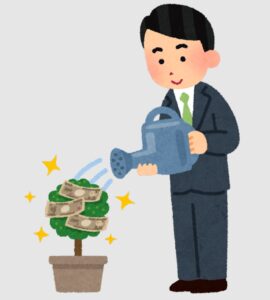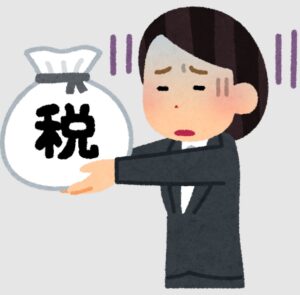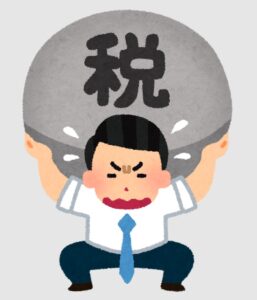管理人オススメコンテンツはこちら
「お金が貯まりやすくなる|借金知らずの生活習慣革命」
〜前回のつづき〜
●カードローンは“選択肢”じゃない、“最後通告”だ!~ローンを敵にするな、浪費が敵だ~

奨学金や住宅ローンの場合
金利が低いのであれば
利息の負担が小さいから
あわてて返す必要は無い。
奨学金や住宅ローンについては
今までのお話しを参考にして下さい。
↓
100万円借りてて
金利が1%であれば
金利分として払うのは
1万円ですよね?
だから
毎月800円ちょっと
という事になります。
だから
急いで返しても
金利分得する事は
そんなに無い
ということです。
年利1%の投資利回りを
毎年確実に出せるかどうか?
という事です。
毎年確実にというのは
難しいかもしれないけど
平均であれば
1%を超えるのは難しくないので
投資に回すという所でも
いいのはいいんですけど
ただそれは
あくまでも数字の話で
そもそも

金利が高いところで借りない
という事が大切です。
カードローンを
使わないといけない状況を
避けるという事です。
そういう状況を作らない事の方が
大切なんですね。
いくら100万円カードローンを
返すお金を投資に回したって
増える分というのは
まだまだ元本が小さい間は
たかが知れてるので
それをするよりも先に
・貯金出来る体質
・借金を作らないという体質
を作るという事の方が
はるかに大切だと思います。
●まずは貯めろ、クセになるから~金を守れ、心が守られる~

貯金をクセ付けましょう。
その為には
どうしたらいいのかというと

生活防衛資金を確保する
という事です。
これをやる事によって
貯金のクセをつけていく
という事です。
浪費グセを減らしたり
色んな原因があると思います。
・生活防衛資金
・投資の種銭作り
のためにはずっと言ってますが
どうするかと言うと
(1)固定費を下げる
・格安SIMにする
・無駄な保険を解約、見直す
・車を手放す
・家賃を下げる
自分一人で完結するので
まずはここからです。
(2)生活防衛資金の確保
会社員であれば
大体3〜6ヶ月分
自営業であれば
大体半年〜1年分
収入がなくなっても
このぐらいの期間生きていける
最低限の生活費ですね。
これは遊興費など
贅沢費は除きます。
最低限生きていける
という分の費用ですね。
自分自身は
収入が無くなったとしても
何かは出来ると思うので。
これは
趣味のお金とかまでは入れずに
最低限生きていくためのという事を
ちゃんと覚えておいてください。
生活防衛資金の
確保をする事によって
やはり精神的にも余裕が出るし
余計な保険なんかに
入らなくても済むので
余計にお金が
貯まりやすくなるんですよね。
〜〜〜つづく〜〜〜
Special Thanks college president Ryo.

●おまけ
≪≪perplexityちゃんによる文章まとめ≫≫
奨学金や住宅ローンのような低金利の借入は、利息負担が小さいため急いで返済する必要はありません。
例えば、100万円を年利1%で借りた場合、年間の利息は約1万円で、毎月に換算すると800円程度です。
この程度の利息負担なら、無理に繰上げ返済するよりも、投資に回して平均1%以上の利回りを目指す選択肢もあります。
ただし、重要なのは高金利のカードローンを利用しないことです。
カードローンは「最後通告」とも言えるもので、できるだけ使わない状況を作ることが大切です。
そのためには、まず「貯金できる体質」と「借金を作らない体質」を身につけることが優先されます。
具体的には、生活防衛資金として、会社員なら3~6ヶ月分、自営業なら半年~1年分の最低限の生活費を貯めることが推奨されます。
また、固定費を見直して削減することも効果的です。
格安SIMへの変更や不要な保険の解約、車や家賃の見直しなど、自分でコントロールできる支出を減らすことで、貯金の習慣が自然と身につき、精神的な余裕も生まれます。
浪費を敵とし、まずはお金を守ることが心の安定にもつながるのです。
- https://www.jasso.go.jp/shogakukin/oyakudachi/document/simulation.html
- https://gaxi.jp/article/pBNQaj6wZj8qr0vP
- https://www.bk.mufg.jp/column/loan/0013.html
- https://www.joyobank.co.jp/woman/column/201603_03.html
- https://www.ashikagabank.co.jp/blog/76
- https://www.jasso.go.jp/shogakukin/about/kyufu/kakei/zaigaku.html
- https://finance.recruit.co.jp/article/k049/
- https://www.shigaken.shinkumi.jp/loansimulation.html
≪≪Chat-GPTくんによる英訳≫≫
~Continuation from the previous part~
【A Card Loan is not an “option” — it’s a “final warning”!-Don’t treat loans as the enemy; your enemy is wasteful spending.】
In the case of student loans or home mortgages,
if the interest rate is low,
the interest burden is small,
so there’s no need to rush to repay them.
For more on student loans and mortgages,
please refer to the following previous discussions:
→
75 Should You Prepay Your Student Loans? (Part 1)
15 Do You Really Need to Own a Home? (Part 1)
—
If you borrow 1 million yen at an interest rate of 1%,
the interest you pay is 10,000 yen per year, right?
That’s roughly 800 yen per month.
So, even if you repay it quickly,
you don’t gain much from reducing the interest.
The real question is:
Can you reliably earn a 1% annual return on investment every year?
While doing that consistently every year may be hard,
it’s not too difficult to exceed 1% on average.
So sure, putting the money into investments is not a bad idea—
but that’s just a numbers game.
What’s more important is this:
Don’t borrow from high-interest lenders in the first place.
You need to avoid getting into a situation
where you have to rely on a card loan.
Preventing such a situation is more important.
Even if you invest money you would have used to pay off
a 1 million yen card loan,
the gains are still very limited
when the principal is small.
So before doing that, you should first focus on:
Building a habit of saving
Creating a lifestyle that doesn’t lead to debt
This is far more important.
—
【Save first — it becomes a habit-Protect your money, and your mind will be protected too】
Start by developing a habit of saving.
So, how do you do that?
By building up an emergency fund (or “living defense fund”).
Doing this helps you form the habit of saving money.
Reducing wasteful spending is part of it,
but the root causes vary.
To build up:
An emergency fund
Seed money for investing
Here’s what you need to do:
—
(1) Lower your fixed costs
Switch to a cheaper mobile carrier (e.g., SIM card plan)
Cancel or review unnecessary insurance
Sell your car if possible
Lower your rent
These are things you can do on your own. Start here.
—
(2) Build your emergency fund
If you’re a company employee:
→ Aim for 3 to 6 months of living expenses
If you’re self-employed:
→ Aim for 6 months to 1 year
This means you should be able to survive
for that duration even with no income.
Note: this does not include luxury or entertainment expenses.
Only include the minimum needed to live.
Even if you lose all your income,
you’ll likely still find something to do to get by.
So don’t factor in hobbies or leisure expenses here—
just focus on the essentials.
—
By securing an emergency fund,
you’ll have more mental peace,
and you’ll no longer need to rely on unnecessary insurance.
As a result, it becomes even easier to save more money.
Special Thanks OpenAI and Perplexity AI, Inc








